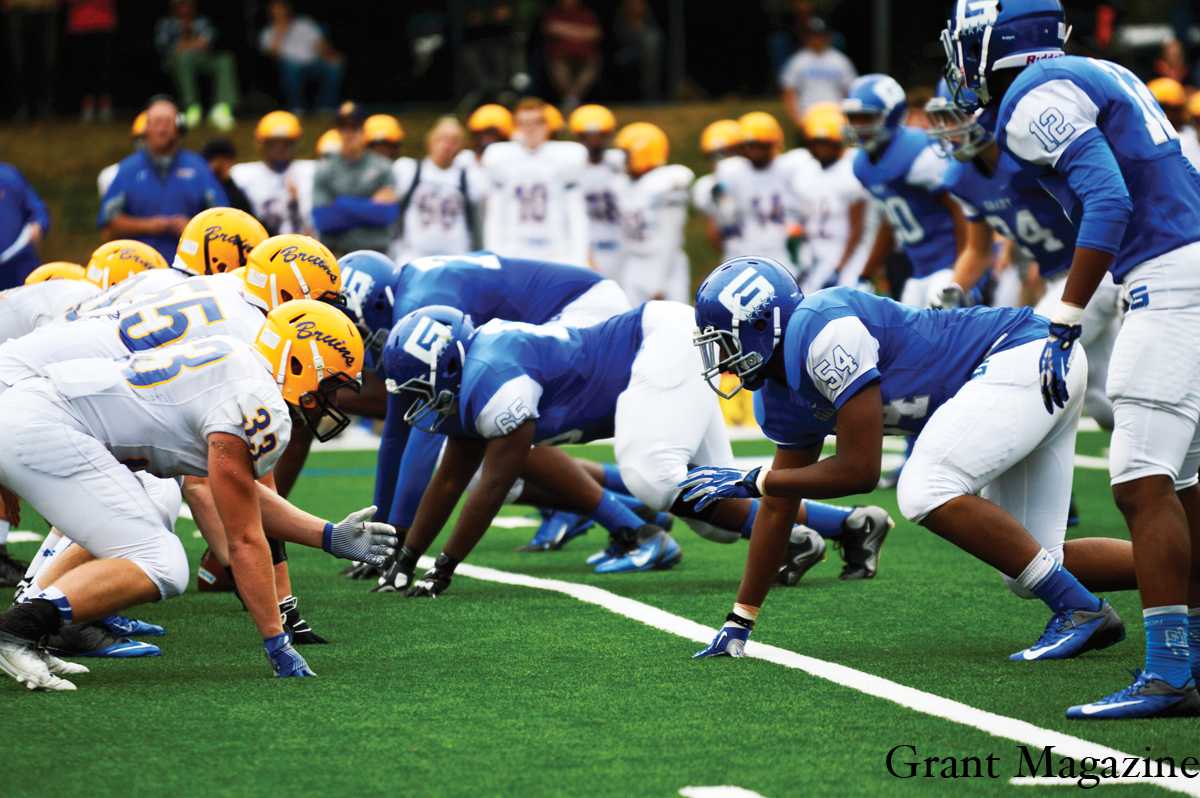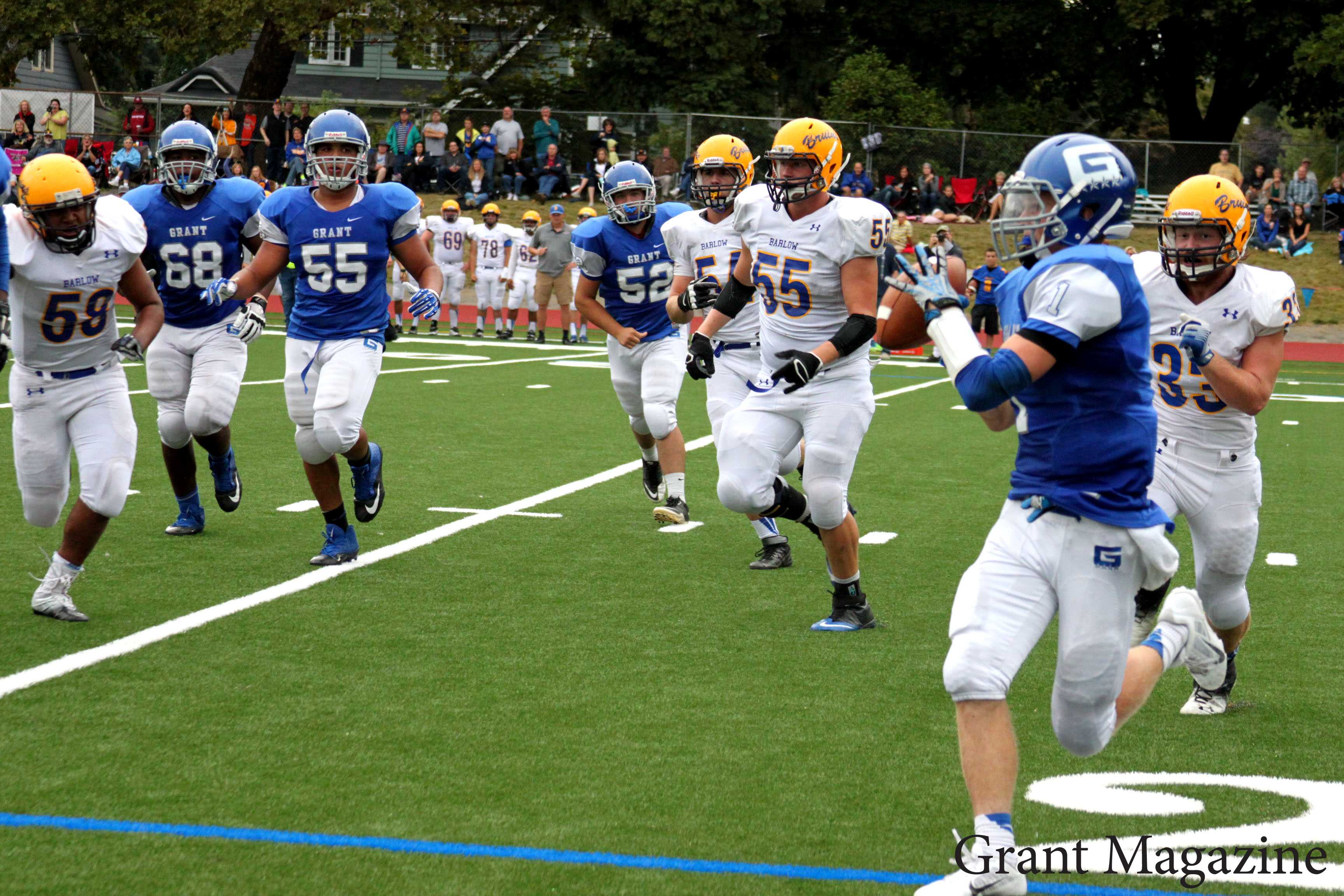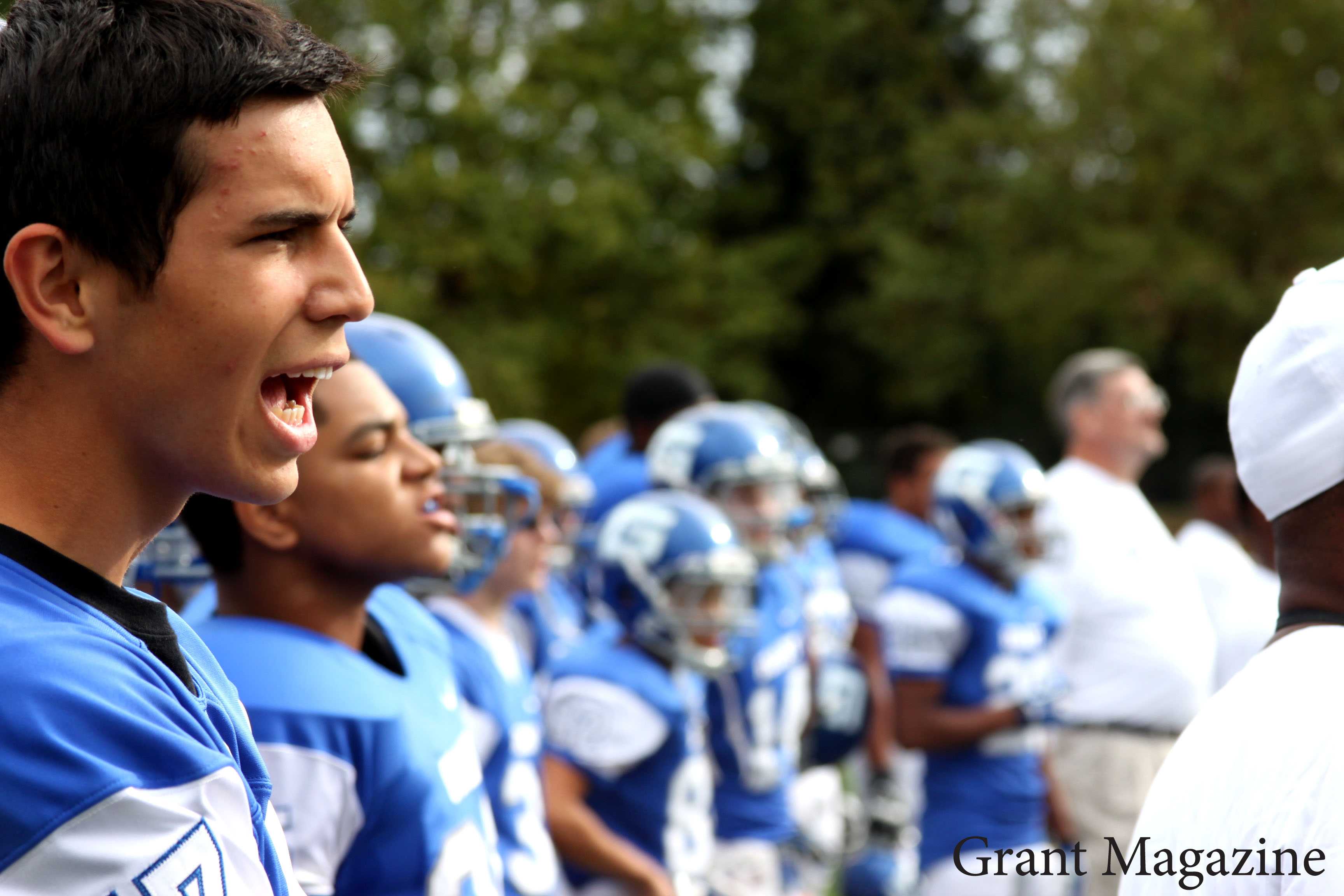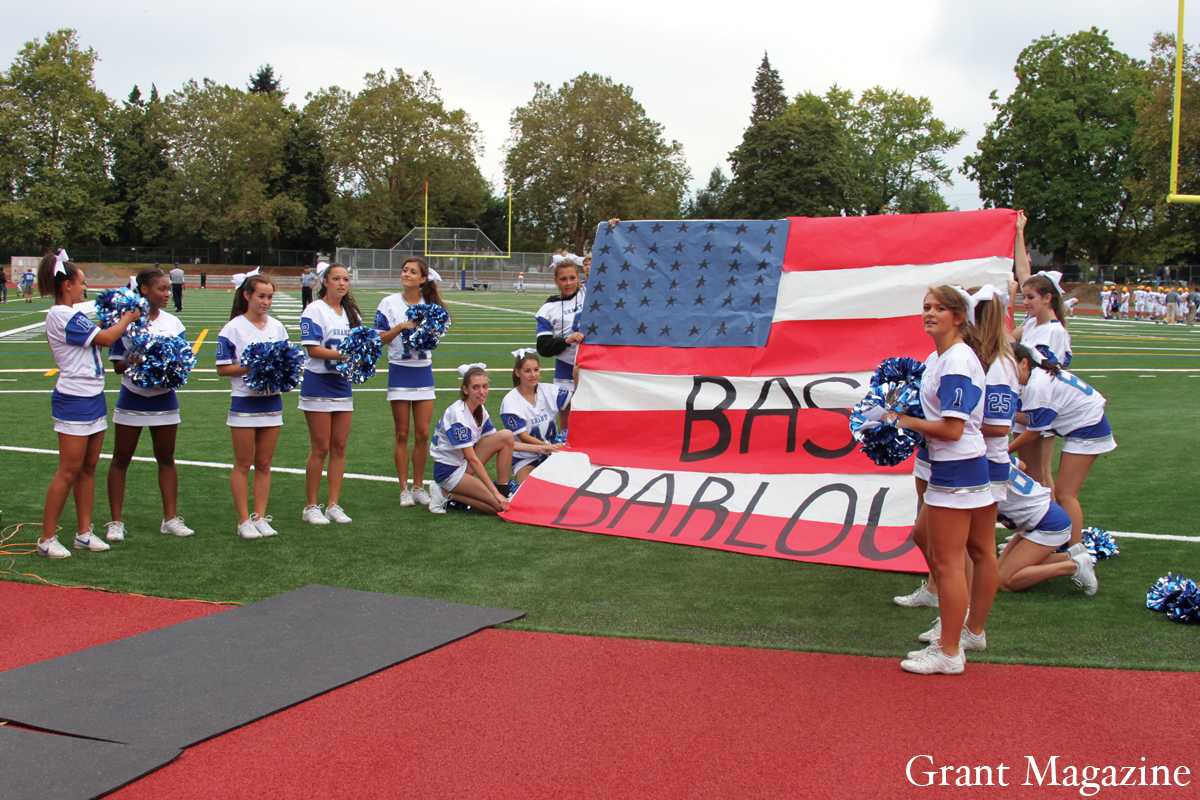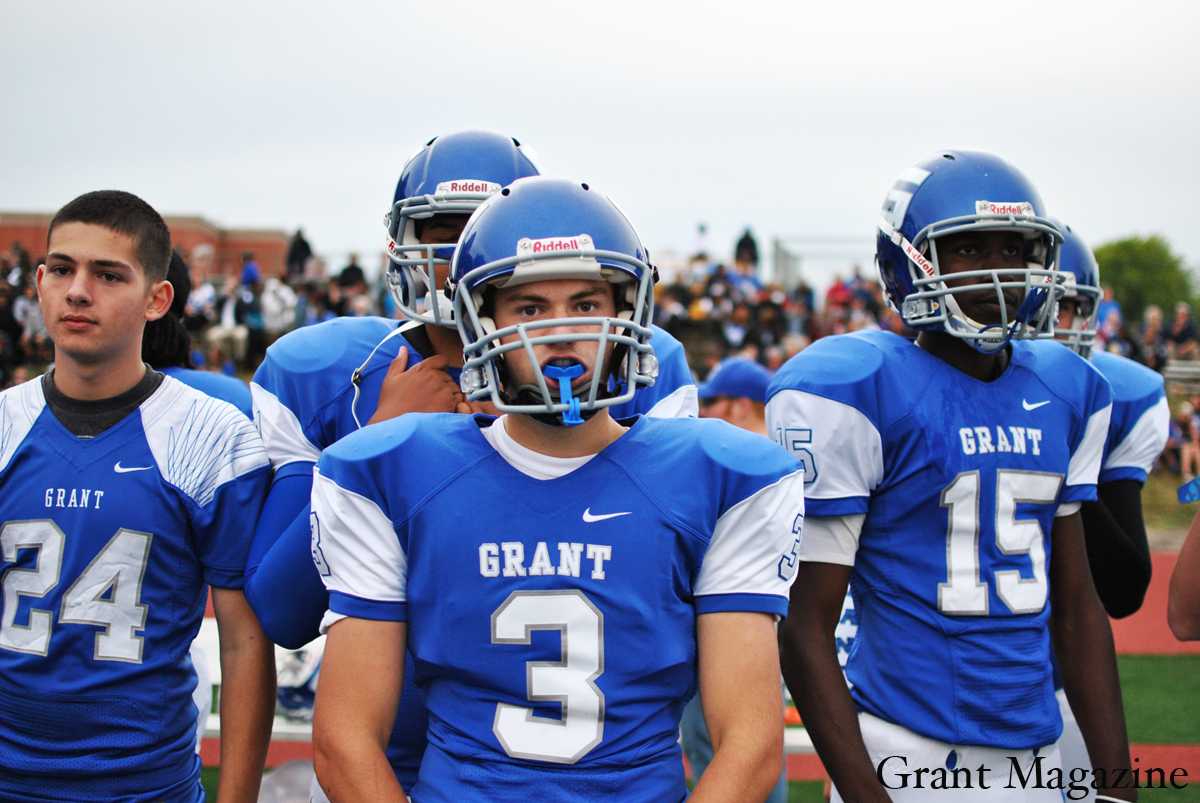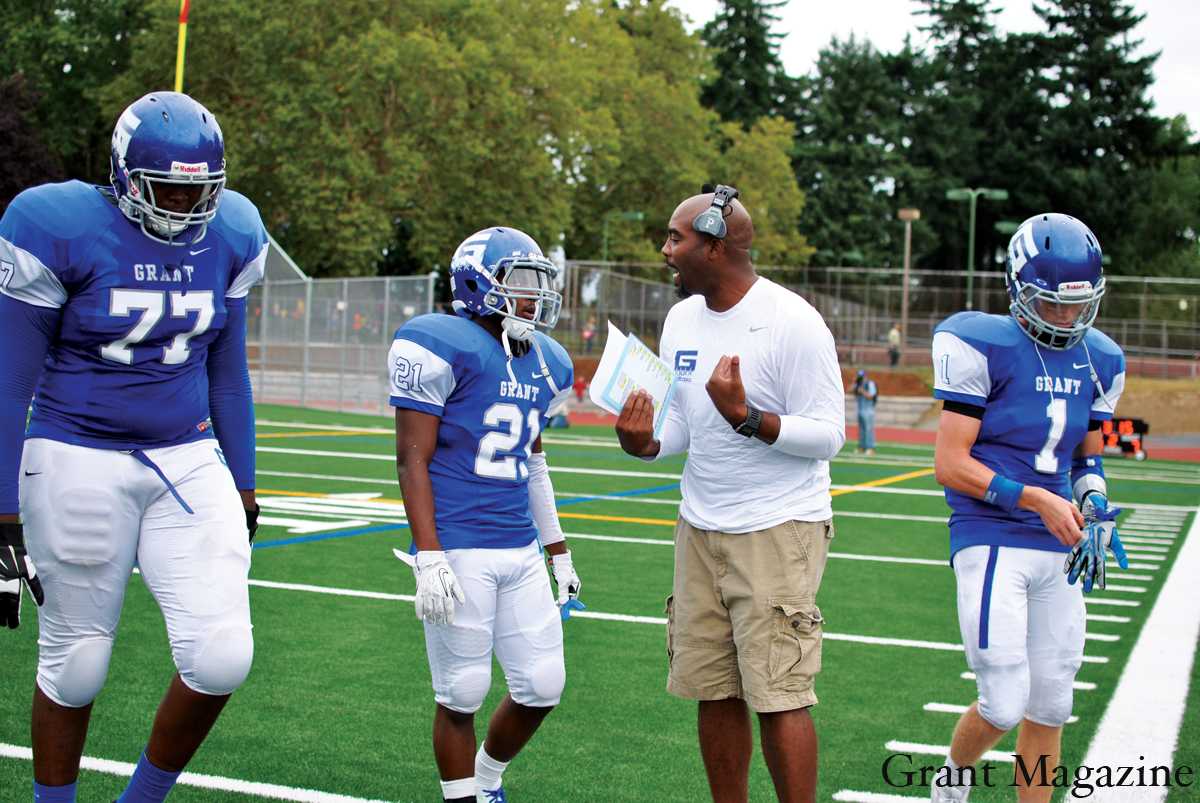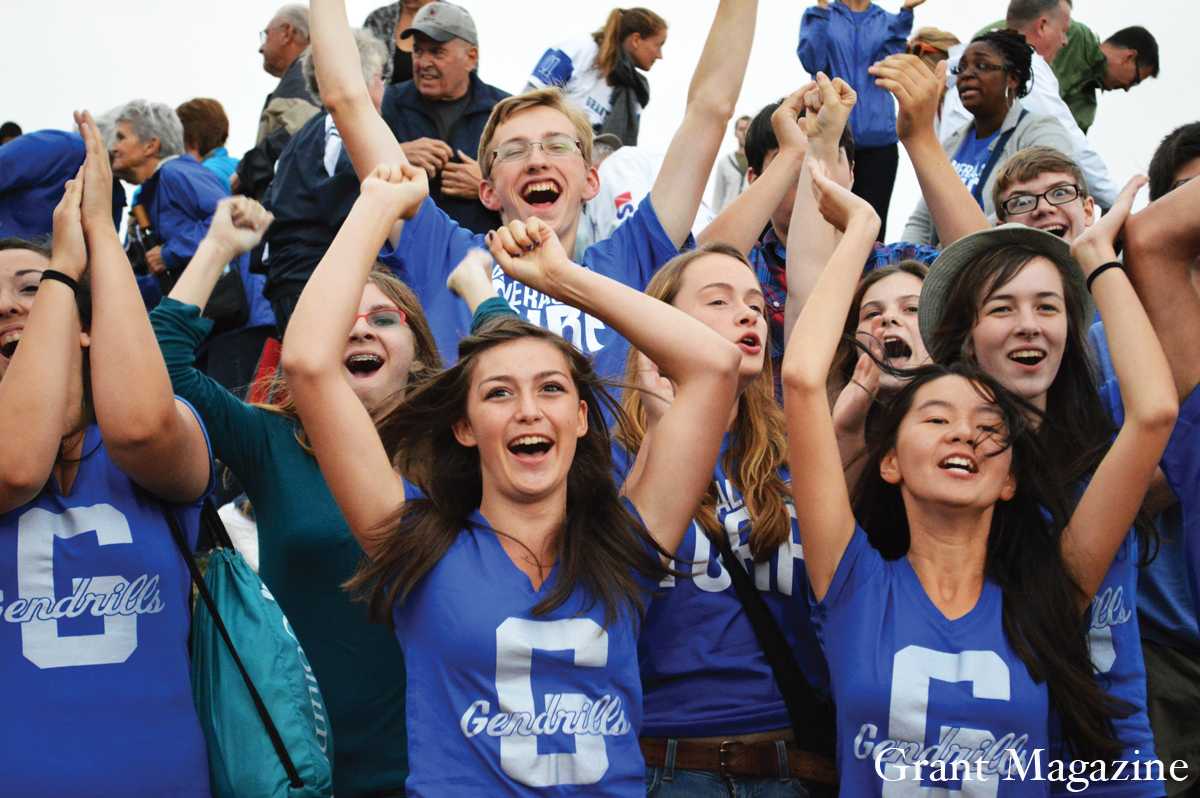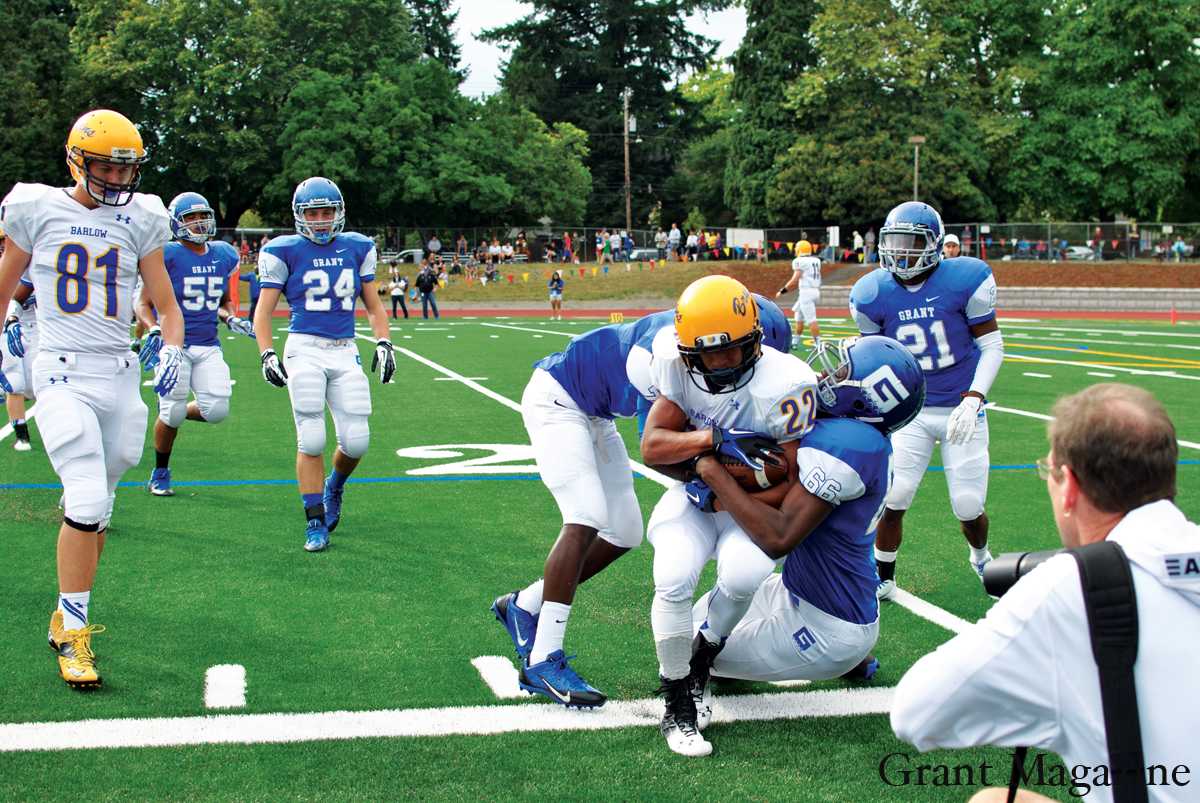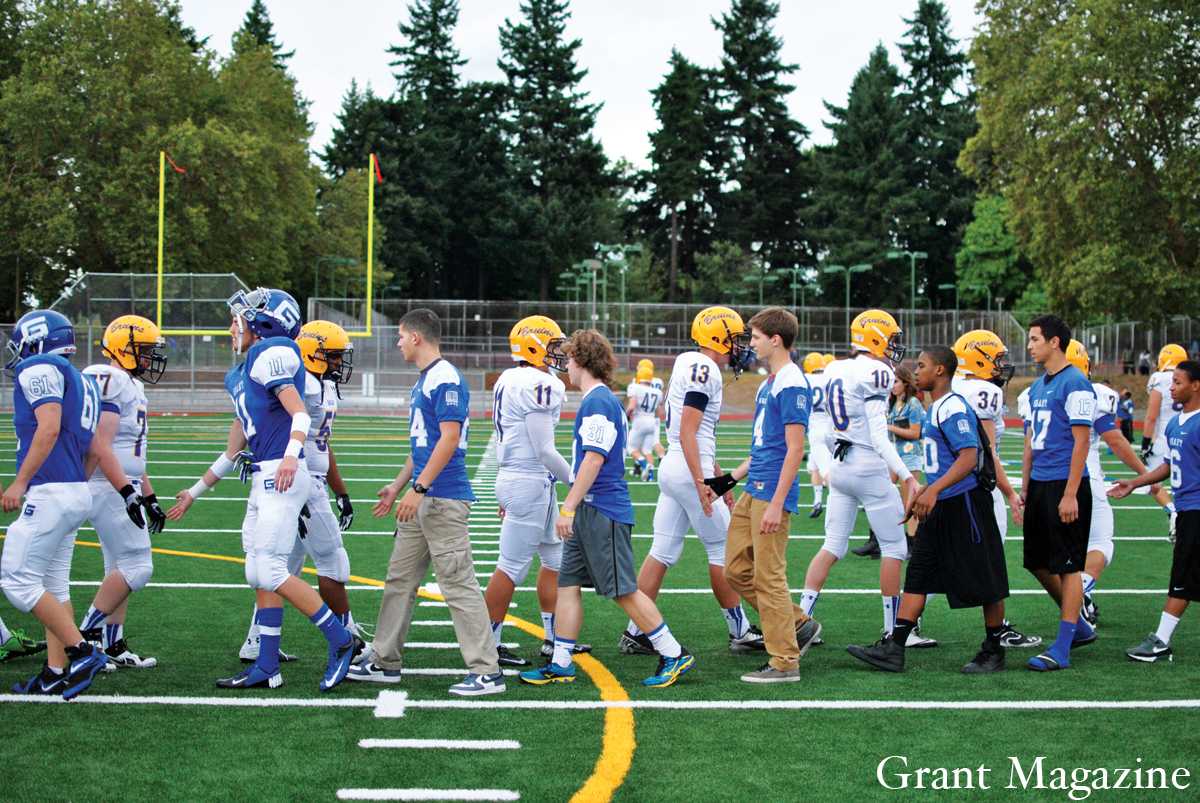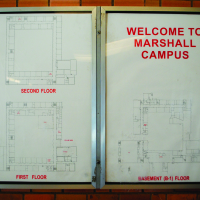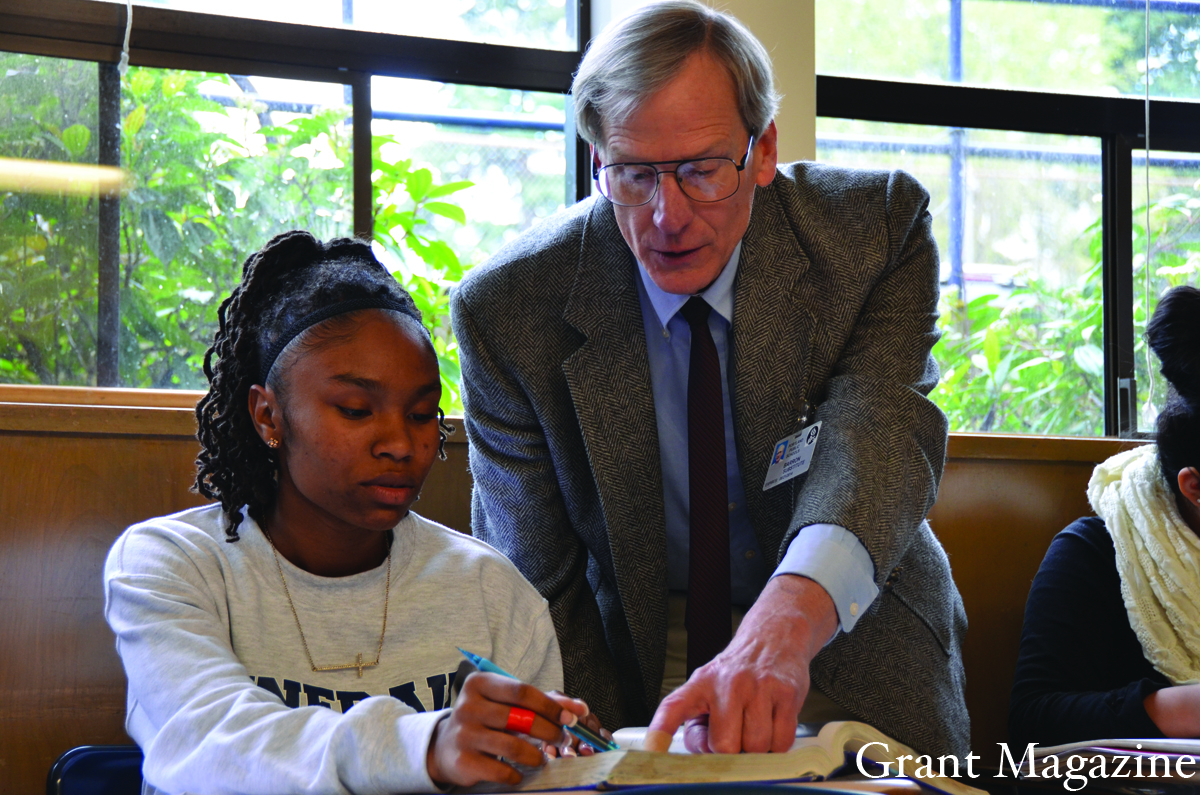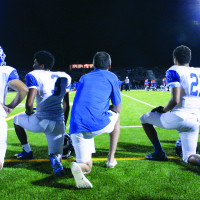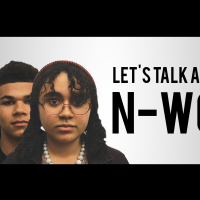Last month, Grant High School held its one and only home varsity football game of the season. The Grant Bowl was packed with ecstatic community supporters and students waiting to attend the ceremony to celebrate what had long eluded everyone: a turf field.
All around, General fans roared when the team earned a two-point victory over Barlow.
But the game didn’t feel like most high school football games. At Grant, there are no stadium bleachers. There’s no fencing. And there’s no main gate. Games for any sport have to be played at four p.m.
Why? Because there are no lights. Grant is the only school in Portland that doesn’t have a lighted field and the school’s teams will have to continue to use Lincoln High School’s stadium as its “home” turf.
“I think it takes away from the experience,” says Tori Sibley, a Grant junior and loyal football fan. “Our actual home field should be our home field.”
The lack of lights affects more than just the football players.
“We are limited in the use of the field because we don’t have lights,” says Diallo Lewis, Grant’s athletic director and head football coach. “We are limited to one time slot. It limits us as a community to work with our young people to give them the best opportunities because we do not have as much time.”
The issue with the Grant field is that it is unique. It’s property that is owned by the city of Portland’s Parks and Recreation Department. Portland Public Schools has rights to use the field but can’t make decisions about installing lights and using the field.
“Our actual home field should be our home field.” – Tori Sibley
It took nearly 13 years before turf got installed. The original plan to improve Grant’s field included more than an all-weather field. It also called for lights, permanent seating, partial permanent fencing around the bowl and a permanent railing for the north edge of the bowl. Officials also wanted to regrade the soccer and baseball fields, making them turf as well. Even the Hollyrood field was going to get a facelift.
But when money got tight, the bowl became the first priority. The rest of the project was put on hold.
Lights appeared to be a major sticking point. In 2005, the Grant Park Neighborhood Association mailed 4,000 surveys to the entire surrounding neighborhood. Only 200 were returned, according to the neighborhood association website.
As early as 2006, an advisory committee cut everything but the all-weather turf in the bowl out of the plan. It was echoed by City Council members, students and neighbors that there was too much opposition by the neighbors to continue on with the other amenities.
In 2008, Commissioner Nick Fish – who successfully ran Parks for years – worked alongside community members and other partners to bring the all-weather turf to Grant. “There was enough opposition to the lights that it was a smart move to put the lights to the side,” Fish said.
“We ask a lot of our student athletes, they deserve to have the highest quality fields.” – Nick Fish
A few neighbors complained that improved facilities would bring extra activity to the bowl, which meant unwanted activity near their homes, as well as an increase in late night noise.
Today, some neighbors say they don’t necessarily oppose the lights. They just want to know more. “I don’t know and that’s the big question in my mind,” says Bill Apt, who lives on Northeast 36th Avenue. “I would just like to hear how bright the lights would be, how they would be aimed. I just want more information.”
Others say they want the school to have lights. “I think that lights need to be there,” says Andy Zalman, who lives nearby on Northeast 33rd Avenue. “It’s part of living across the street from a high school.”
Andrea Piro lives on Northeast 36th Avenue and is blunt in her assessment about whether the field should have lights.
“If you’re going to buy property across the street from a school, you can’t get mad at the school for encouraging and for supporting young kids from having a good healthy activity,” she says.
Fish wants the field to have lights, just like the other schools. As Parks commissioner, he successfully helped establish partnerships that brought turf fields and lights to schools like Benson.
While he no longer oversees Parks, he says the school’s athletes should not give up. “We ask a lot of our student athletes, they deserve to have the highest quality fields,” Fish says. “The lights are the icing on the cake, the cake is the all-weather turf.”
Currently, three Grant juniors from the Leadership Class – Amanda Johnston, Amber Burkhart and Claire Lupfer – are working with Lewis to bring lights to Grant.
Nike, one of the main sponsors on the field project, teamed up with Grant Leadership and donated “General’s Turf” shirts for the opening game. The shirts sold for $10 and all money went to a fund to pay for lights.
Currently, Lewis and Leadership are talking with Musco Lighting LLC to negotiate the cost of temporary lights. Leadership has contacted school officials and wants to work with the district to find a reasonable cost for the lights. They are also talking with Parks Bureau officials to figure out how to bring lights to the field.
Despite the slow process, Johnston does not plan on quitting. “I feel like growing up here, I never had a strong sense of ‘There’s a really good community in Northeast Portland,’” Johnston says. “I think it’d be really great to have that thing where everyone can come together and we can actually feel like a community. It’s less about something for the football players or something for our school. It’s for the entire neighborhood. It’s bigger than us.” ♦

